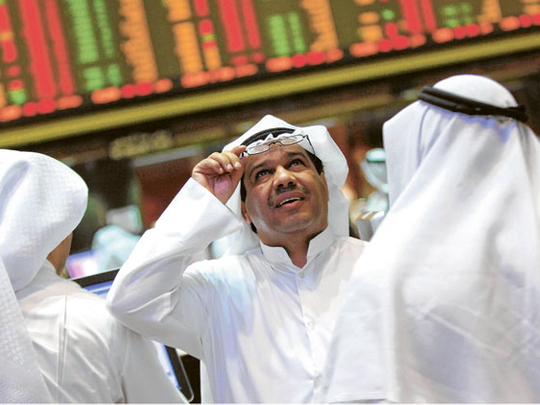
Dubai: Stock markets in the Middle East are still affected by the political turmoil in the region, extending their losses from last week.
Oman's index made its largest decline in four weeks, slumping to a 22-week low following unrest in the largest industrial city Sohar. The benchmark dropped 2.8 per cent to 6,458 points, its biggest fall since January 30 and lowest close since September 23. Oman is the latest country in the Gulf Cooperation Council to witness protests after deadly unrest in Bahrain and demonstrations in Kuwait.
Renaissance Services and Jazeera Steel plunged 10 and 9.7 per cent respectively as 16 stocks fall by more than 5 per cent.
"There was a big sell-off by retail investors and foreign institutions," says Adel Nasr, United Securities brokerage manager.
Saudi Arabia's index fell further, with investors little moved by a $37 billion (Dh136 billion) social spending programme announced by King Abdullah on his return to the kingdom last week. Saudi Basic Industries Corp (Sabic) fell 0.3 per cent, Saudi Telecom Co dropped 1 per cent and Kingdom Holding lost 0.6 per cent. The spending plan aims to help lower- and middle-income Saudi nationals. It includes pay rises to offset inflation, unemployment benefits and affordable family housing.
Reducing positions
"This was supposed to boost the market, but it isn't going to ease the concerns of people afraid about the political situation in the region," says a Riyadh-based analyst who asked not to be identified. "Locals are reducing positions and are thinking about various scenarios that may affect them in the coming weeks," says Matthew Wakeman, EFG-Hermes managing director for cash and equity-linked trading.
"You have to drill down quite far to find buyers and it doesn't take much selling pressure to push the market down given the low liquidity at the moment."












